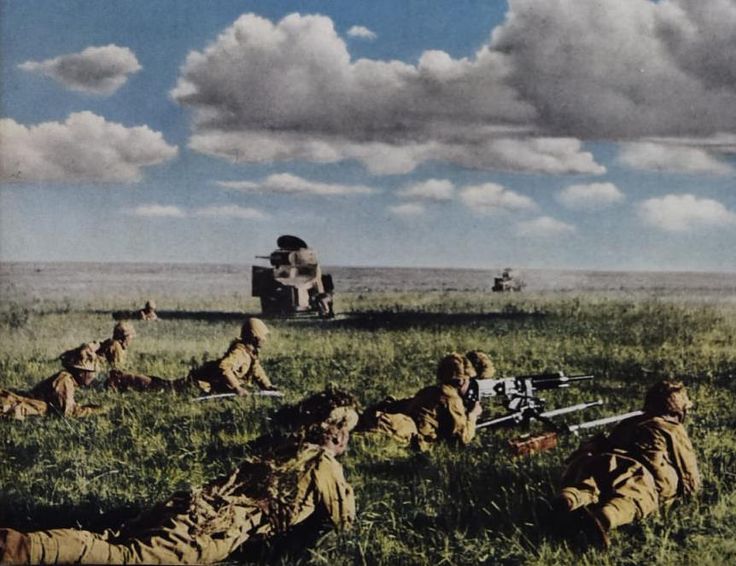
The battle of Khalkin-Gol is rarely mentioned in the lists of significant battles of the 20th century, but it has had a profound effect on the course of that century. This battle was fought between the Russians and the Japanese in the year 1939 and was extremely significant in the eventual Allied victory over the Axis powers in World War II. Shortly before Hitler’s tanks blitzed their way through Poland, the Japanese and Russians met in a battle which though virtually ignored in history books, did much to shape the course of that war’s final outcome.
While there had been pressure building in eastern Asia between the Russians and Japanese for decades, tensions came to a head on May 11th of 1939 when a small force of Russia’s Mongolian vassals accidentally moved across a disputed border into what was then the Japanese controlled region of Manchuria. The Japanese pushed them out, but were consequently repelled by a larger force of Mongolian’s. The Japanese began funneling large amounts of troops to the disputed region, which led the Russians to do the same. On May 22nd, a small force of Japanese reconnaissance troops was surrounded and destroyed by Russian soldiers. Over 100 Japanese were killed. This skirmish quickly led to a large scale escalation by both the Japanese and the Russians.
At the peak of the battle, the Japanese had around 75,000 troops and the Russians almost 60,000. The battle turned into nothing short of a small scale war as planes, tanks, and artillery were all utilized in an attempt to gain an advantage for their respective sides. The battle dragged on into late summer with ups and down for both sides. The Japanese attempted two major offensives but both were repulsed by the Russian forces being led by the Soviet commander Georgy Zhukov (who later led the Russians to victory against the Germans at Stalingrad). Finally in August, Zhukov decided to go on the offensive, and with a force of almost 50,000 Soviet and Mongolian troops, almost 500 tanks, and an impressive array of air power, Zhukov led an incredible encircling movement of the Japanese forces. The move was so successful that the entire Japanese force was either beaten back or surrounded. Most of the surrounded troops refused to surrender and the Soviets wiped them out with artillery and air strikes. The battle concluded on August 31st with the total defeat of the Japanese and the next day, September 1st, German tanks rolled into Poland beginning World War II.
The implications of the battle of Khalkhin-Gol cannot be overstated. Essentially this defeat so utterly convinced the Japanese they could not be victorious over the Soviets that they decided it would be more advantageous for the Japanese to expand into the Pacific than to continue pushing into eastern Russia. This policy meant the Japanese would inevitably come into contact with the United States, but the Japanese decided they would rather face America than Russia. It is possible that if the Japanese had won the battle of Khalkin-Gol, they would never have fought the battle of Pearl Harbor two and a half years later. Not only did this battle set the pieces for the war soon to be in the Pacific, but it also kept Russia from having to fight a two front war, splitting its soldiers between fighting the Japanese in the east and the Germans in the west. The impact this could have had is enormous. It’s scary to think of what might have happened if the battle of Khalkin-Gol had ended differently.